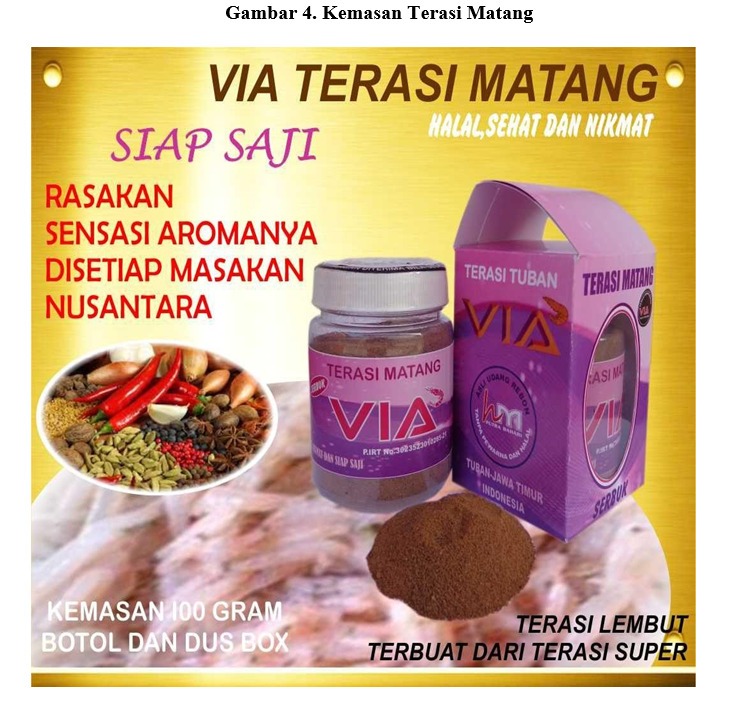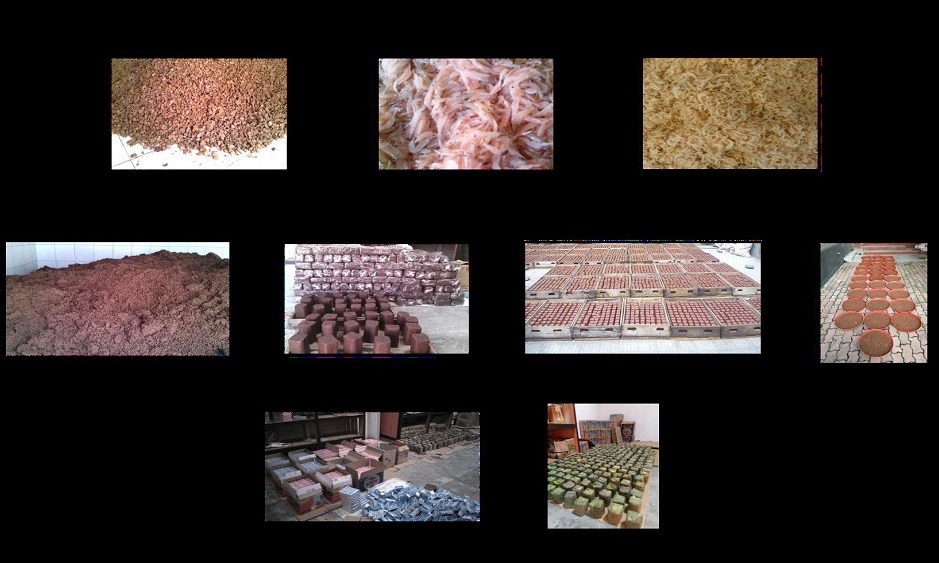In Cooperation with Ubhara, ITS Lecturer Develops Infamous Terasi Rebon

Terasi Rebon (shrimp paste) product that is packaged neatly using high technology Tray Dryer, by ITS Lecturer
Kampus ITS, ITS News – Another brilliant achievement was collected by Institut Teknologi Sepuluh November (ITS) through the collaboration of one of the ITS lecturers, Dr. Soehardjoepri, M.Si., together with the University of Bhayangkara Surabaya (Ubhara). He succeeded in developing a highly competitive processed seafood, Terasi Rebon (shrimp paste), using Tray Dryer technology.
At the beginning of the journey, this lecturer, who is familiarly called Djoepri, explored the potential of each region to get superior products. Together with Ubhara, Djoepri finally declared Karang Agung Village, Palang Tuban District, East Java as a place for research development because it was considered to have excellent potential for shrimp paste.
“We see high-quality paste products in Tuban, so we are trying to develop those resources with high-quality technology,” explained this man who originated from Jember.
Djoepri added that as a representative of ITS, he had a role in technology development. One of the technologies utilized is Tray Dryer, which is a type of rack dryer or cabinet dryer that can be used to dry lumpy or paste solids. This is done by placing the material to be dried in a tray that is directly connected to the drying media.
Meanwhile, Ubhara plays a more non-technological role, such as economic management and personnel. “That way, terasi, which is generally only produced conventionally, can become a modern terasi that can compete with other products up to the international level,” elaborated this lecturer who completed his doctoral education at ITS.
Djoepri claimed to have been working with Ubhara since 2016. However, this program has only been running since 2019 and is planned to end in 2021. In the first year, he and Ubhara focused more on development in terms of business establishment, stabilization of packaging, to conducting conventional production processes.

Overview of Terasi Rebon (shrimp paste) production process
Right in the second year, namely this year, Djoepri continued that the ongoing research was hampered by the Covid-19 pandemic. Even so, discussion and research can continue through existing web-seminars (Webinars). “We do not have significant obstacles, it’s just that this year we need to target how we will create the marketing process,” revealed this ITS Actuarial Science Department lecturer when contacted via voice message.
Although in the process of making it is not much different from the paste in general, Djoepri expressed that the paste (terasi) that is processed by technology obtains uniqueness in terms of taste and packaging, which is claimed to be more slick and diverse. Those are the things that are delivered by Djoepri to introduce more extensive shrimp paste. Not only in the scope of Java or Indonesia but also can be known to other countries.
Previously, ITS, as a State University (PTN), had long-established partnerships with Private Universities (PTS) throughout Indonesia, one of which was Ubhara. The aim is none other than to improve the quality of research.
“When I did research together with Ubhara and submitted the Regional Superior Product Development Program (PPPUD), it was apparently approved by the Ministry of Research, Technology, and Higher Education (Kemenristekdikti),” he recalled.
At the end of the interview with the ITS Online Team, Djoepri invited Indonesian people to explore the potential of each region and use it by conducting other positive collaborations. “So that the potential resources in small areas can be brought to the outside world and can be developed better,” he concluded hopefully. (chi/lut/ory/ITS Public Relations)

Diverse known Terasi Rebon (shrimp paste) products from Tuban
Related News
-
ITS Lecturer Introduces Madurese Culture to the International Stage
ITS Campus, ITS News — Continuing to show local wisdom to the world community, this time a lecturer from the Department
June 25, 2020 23:06 -
ITS Researchers Remind TKDN is Crucial for Economic Independence
ITS Campus, ITS News — The Domestic Component Level (TKDN) is the key to restoring the glory of the Indonesian
June 25, 2020 23:06 -
Strengthening Quality Education, ITS Professor Develops Adaptive Technology for Students
ITS Campus, ITS News — Differences in students’ abilities in understanding lessons are often a challenge for teachers in the classroom.
June 25, 2020 23:06 -
ITS Graduates Create Reverse Logistics Model for PET Plastic Waste Recycling
ITS Campus, ITS News — Doctoral graduate from the Department of Industrial and Systems Engineering, Sepuluh Nopember Institute of Technology (ITS) Dr. Yuniar
June 25, 2020 23:06
